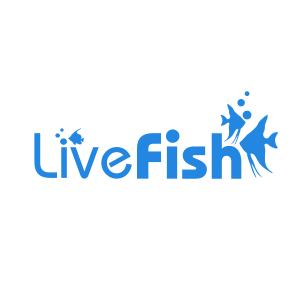Assorted Discus 7cm
EXAMPLE IMAGE ONLY!
Discus are beautiful and generally peaceful aquarium fish.
They come in many colours and patterns, and the assorted stock has a mixture of all sorts, colours, and types vary.
NOTE - Price is per fish, the picture shows some of the variations.
- Buy 2 for $103.41 each and save 10%
- Buy 4 for $91.92 each and save 20%
- Buy 6 for $80.43 each and save 30%
Discus are shy and generally peaceful aquarium inhabitants.
They are sensitive to stress and disturbance or lack of protection.
The best cohabitants may be angelfish and small characides like tetras.
It is noteworthy, however, that small fish may be intimidated or eaten by the discus. Catfish with sucker mouths are less than ideal cohabitants for discus since they sometimes attach themselves on the sides of the discus and eat their mucus membranes.
Many aquarists consider discus to be finicky and not particularly hardy. They often become susceptible to disease and die if not kept in optimal conditions.
Aquariums for discus should be kept within a temperature range of 26-31 C; a temperature of 29 C is thought ideal for adults. Babies and young fish should be maintained at 31 C degrees.
The water should be very soft and acidic; a pH of 5.5 - 6.5 is considered good for wild-caught discus.
Captive-bred fish adapt very well to harder water and to pH up to 7.2, except when attempting to breed, in which case soft and acidic is best.
VERY clean water with frequent large volume water changes is necessary for the health of these fish.
Allow approximately 40 liters of water in the tank per adult fish.
Water quality must be very high, as discus do not tolerate pollution of any sort very well. A good tank will be equipped with a high-capacity biological filter and be fully cycled (which usually takes a month or more.) Ammonia and nitrites should be kept at 0 ppm. Nitrates should also be kept as low as possible.
Weekly water changes are important, except in the case of a very heavily planted tank with high nitrogen compound grounding capacity and a very small biological load.
Feeding discus is sometimes a challenge. They have no unique nutritional requirements; they can be raised on just about any high-protein fish food. However, discus is often extremely cautious about new foods; it is not unusual for them to go for weeks without food before accepting a new type of food. After starving for a month discus will almost always accept new food, but this may stunt the growth of younger fish.
| Scientific Name | Symphysodon Sp. |
|---|---|
| Care Level | Hard |
| Diet | Omnivore |
| Fish Family | Cichlidae |
| Lifespan (years) | 10 |
| Max. Length (cm) | 20 |
| Min. Tank Volume (l) | 100 |
| Origin | South America - Amazon Basin |
| Sociability | Peaceful |
| Water Conditions | Temp: 27°C - 30°C, pH: 6.0 - 6.8 (7 at highest), GH: 50 - 100 ppm |
-
0Hi, I was wondering what colours of discus you currently have in stock?Read Detail
 Submited by: Chloe Betts
Submited by: Chloe Betts
 29 Aug 2020
29 Aug 2020
-
Hi Chloe, It will vary from batch to batch so this can change from day to day. Read full answerAnswered by Admin on 07 Sep 2020
-
- 1



